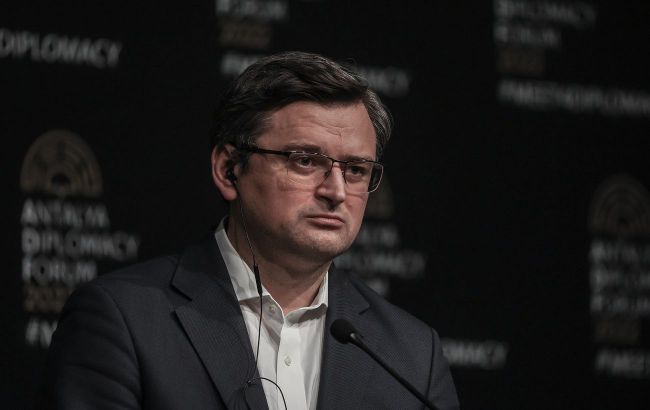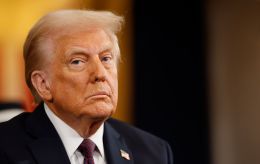Ukraine's Foreign Minister discusses regional and global threats with Israeli counterpart
 Photo: Dmytro Kuleba, head of the Ministry of Foreign Affairs of Ukraine (Getty Images)
Photo: Dmytro Kuleba, head of the Ministry of Foreign Affairs of Ukraine (Getty Images)
The Minister of Foreign Affairs of Ukraine, Dmytro Kuleba, during a telephone conversation with his Israeli counterpart, Israel Katz, discussed the threats facing both countries.
The parties also talked about cooperation between Ukraine and Israel. The conversation took place on July 3.
"We also exchanged views on a number of regional and global threats posed by Russia, Iran, and North Korea," Kuleba notes.
Meanwhile, the Israeli Foreign Ministry notes that this conversation is part of Jerusalem's efforts to mobilize European countries against Iran.
During the conversation, Katz told Kuleba about the situation in the Gaza Strip, as well as on the northern borders of Israel.
The Ukrainian Minister noted that Iranian drones, which are used by the organization Hezbollah for attacks on the territory of Israel, have been actively and for a long time used by the Russian occupiers, and are one of the most serious problems in Ukraine.
"Israel and Ukraine have a common enemy, and this enemy is Iran," the head of the Israeli Foreign Ministry was quoted as saying by the Maariv news agency.
Katz also called on Ukraine to join efforts to mobilize European countries against Iran to impose painful sanctions. They must prevent Tehran from acquiring nuclear weapons, as well as prevent the delivery of drones and missiles to its satellites for strikes on Ukraine and Israel.
Israel's position regarding Russia's war against Ukraine and aid issue
Since the beginning of Russia's full-scale invasion of Ukraine, the Israeli authorities have declared their alleged neutrality. Jerusalem did not provide weapons to Ukraine, but it also did not openly support Moscow's aggression. Also, Israel did not agree to finally act as a mediator.
About a year ago, observers talked about the strengthening of Israel's cooperation with Russia. In particular, in 2023, the Israeli government held two rounds of high-level political negotiations with the Russian Foreign Ministry and agreed on a diplomatic mission.
Then the Ambassador of Ukraine to Israel openly criticized the Israeli government's pro-Russian policy, after which he was summoned to the Ministry of Foreign Affairs.
In July of last year, the President of Ukraine, Volodymyr Zelenskyy, during a briefing, noted that he had repeatedly invited Israeli Prime Minister Benjamin Netanyahu to visit Ukraine, and also raised the issue of a defensive approach. But then - without results.
After the large-scale attack of Hamas militants on Israel in October 2023, relations between Jerusalem and Moscow began to cool. Thus, the Kremlin practically began to justify the attack of the militants, while the states of the conventional West, including Ukraine, sharply condemned the actions of the Hamas.
The current conversation between the heads of the MFA of Ukraine and Israel took place against the background of reports in the press regarding the alleged transfer of several Patriot batteries by Jerusalem to Kyiv. Recently a source of RBC-Ukraine in the Ministry of Defense of Israel said that his country may soon decide on the transfer of Patriot systems to Ukraine through the mediation of the United States.
In addition, Israel has decided to strengthen visa-free conditions for foreigners, including Ukrainians, by requiring them to first obtain an electronic entry permit. The new rules drew criticism from the embassies of Ukraine and Moldova.


